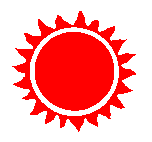Miyavine
| Miyavine | |||||||||||||||||||||||||
|---|---|---|---|---|---|---|---|---|---|---|---|---|---|---|---|---|---|---|---|---|---|---|---|---|---|
 Homo pekinensis mal'gnari | |||||||||||||||||||||||||
| Base Information | |||||||||||||||||||||||||
| Classification | Omnivore/gatherer | ||||||||||||||||||||||||
| Status | Minor Race, Minor Human Race | ||||||||||||||||||||||||
| Locomotion | Walker (Ambulatory) | ||||||||||||||||||||||||
| Terrain | |||||||||||||||||||||||||
| Body Form | |||||||||||||||||||||||||
| Confluence | Human | ||||||||||||||||||||||||
| Bio-Identenoid | |||||||||||||||||||||||||
| Size | 1.8 m | ||||||||||||||||||||||||
| Weight | 100.0 kg | ||||||||||||||||||||||||
| Culture | |||||||||||||||||||||||||
| Languages | |||||||||||||||||||||||||
| Social Structure | |||||||||||||||||||||||||
| Technological Epoch | |||||||||||||||||||||||||
| Psionic potential | Standard | ||||||||||||||||||||||||
| Origin World | |||||||||||||||||||||||||
| Homeworld location | Medurma (Dagudashaag 2124) | ||||||||||||||||||||||||
| UWP | X000000-0
| ||||||||||||||||||||||||
| Primary Star | |||||||||||||||||||||||||
| Atmosphere | Standard | ||||||||||||||||||||||||
| Off-world presence | No | ||||||||||||||||||||||||
| Zoetic individuals | |||||||||||||||||||||||||
| Source | |||||||||||||||||||||||||
| Reference | Signal-GK 02 49,52,66. | ||||||||||||||||||||||||
| Canon | Yes | ||||||||||||||||||||||||
| Also see | |||||||||||||||||||||||||
| TBD | |||||||||||||||||||||||||
The Miyavine were a technologically sophisticated sophont species.
- They were a Minor Human Race with a human appearance.
Description (Specifications)
The Miyavine were a non-starfaring Minor Human Race native to Medurma (Dagudashaag 2124), who are now extinct. Imperial researchers are not sure why the Miyavine died out.
Physical sophontology
The Miyavine averaged 1.8 meters in height and 100.0 kilograms in weight. Humans have a conventional carbon-water based biochemistry. Humans use a conventional respiration cycle consisting of Oxygen-nitrogen inhalant and Carbon dioxide exhalant. The Miyavine homeworld was located on Medurma (Dagudashaag 2124).
History & Background (Dossier)
Archaeological Sophontology: Most of the cultural and historical information about the Miyavine comes from Zeyman’Ikaswu, a major complex of ruins dating from c.-19,500. Zeyman’Ikaswu is now almost encircled by the modern metropolis of High Peak. The ruins exhibit remarkable architecture, including massive truncated pyramids of a pinkish marble-like stone, and huge stone hoops, whose purpose was unknown. Many buildings are covered with ornate frescoes hundreds of metres long. These are of particular interest, as experts are unable to identify several of the creatures depicted in them.
Major historical events timeline
The Miyavine were a Minor Human Race transplanted to Medurma (Dagudashaag 2124) by the Ancients. Medurma contains an Ancient site. Damage to Medurma during the Final War was relatively slight and the Miyavine survived that conflict intact as a species. By about -19,000~ they had reached TL–4. Miyavine had more or less died out, or went extinct, by -18,700. The reasons for this are unknown, but current theories include a genetically programmed "timebomb", which caused the Miyavine to become sterile after a certain number of generations.
Linguistic sophontology
Very little is conclusively known about the Miyavine language. Imperial researchers at Zeyman’Ikaswu are currently studying the now extinct Miyavine language.
Societal sophontology
The Miyavine reached a population of about 75 to 100 million by –20,000. The Miyavine built extensive settlements at Mid-Level and High-Level, and extensive catacombs were dug into the mountain ranges where the stone was sufficiently soft. Dirigibles were used for long-range transport between the high mountain peaks, where the only habitable places on the world exist.
Worlds & Sectors (Astrography)
This race (sophont species) is primarily located in the following areas:
Charted Space:
Homeworld: 1105
The homeworld of this race (sophontic species) is:
World Listing: 1105
Significant communities of this race (sophont species) are known to dwell on the following systems and worlds:
References & Contributors (Sources)
| This article is missing content for one or more detailed sections. Additional details are required to complete the article. You can help the Traveller Wiki by expanding it. |
- Jae Campbell, Leighton Piper. Signal-GK 02 (Signal-GK, 1989), 49,52,66. via HIWG
- Jae Campbell. Encyclopaedia Dagudashaag (Signal-GK, 2017), 250.
- Traveller Wiki Editorial Team
- Author & Contributor: Lord (Marquis) and Master of Sophontology Maksim-Smelchak of the Ministry of Science